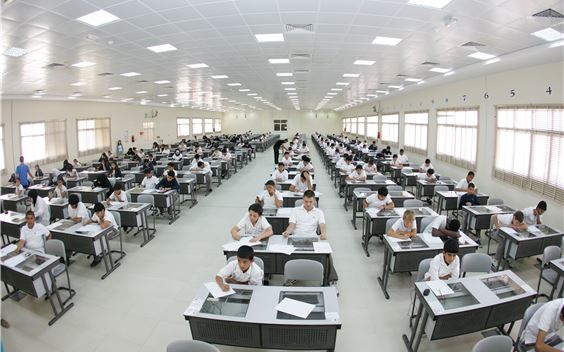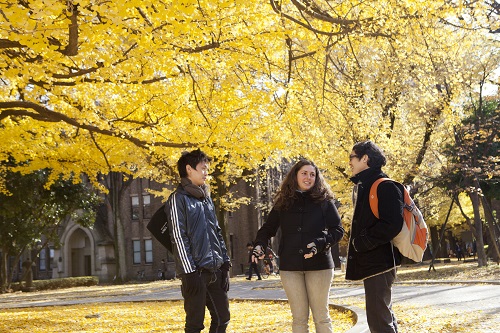Achieve Academic Success The Secrets of Private Schools Revealed
:max_bytes(150000):strip_icc()/GettyImages-887303338-90a8a28697454e1fb0220d814b19d43d.jpg)
private schools Education is the cornerstone of a prosperous future. While public schools provide essential learning opportunities, private schools have carved a niche in the educational landscape by offering unique benefits and methodologies that can significantly enhance a student’s academic success. What secrets do these institutions hold? How do they foster an environment where students flourish academically, socially, and emotionally? Let’s embark on a journey to unveil the hidden gems of private schools and explore how they set the stage for achievement.
:max_bytes(150000):strip_icc()/GettyImages-887303338-90a8a28697454e1fb0220d814b19d43d.jpg)
The Unique Structure of Private Schools
At the heart of every educational institution lies its structure and organization. Private schools often operate independently of state funding, allowing them greater flexibility in curriculum design, teaching methods, and administrative practices. This autonomy fosters an environment where innovation can thrive.
1. Tailored Curriculum
Unlike public schools that must adhere to state standards, private schools often have the liberty to develop curricula that align with their educational philosophy. This flexibility enables them to:
- Integrate advanced placement courses.
- Offer specialized programs (such as arts, sciences, or technology).
- Design a curriculum that emphasizes critical thinking, creativity, and real-world applications.
As a result, students often engage in deeper, more meaningful learning experiences, which can enhance their academic performance.
2. Smaller Class Sizes
One of the most significant advantages of private schools is their commitment to maintaining small class sizes. This personalized approach allows teachers to:
- Provide individualized attention to each student.
- Adapt their teaching methods to suit diverse learning styles.
- Foster stronger relationships between students and educators.
In smaller classrooms, students often feel more comfortable participating in discussions, asking questions, and seeking help when needed, which boosts their confidence and understanding of the material.
3. Highly Qualified Educators
The selection process for teachers in private schools is typically rigorous. Many private schools seek educators with advanced degrees and extensive experience in their respective fields. This emphasis on hiring qualified teachers ensures that students receive high-quality instruction from passionate educators who are dedicated to their success.
Furthermore, teachers in private schools often have the freedom to innovate and explore creative teaching techniques, making learning both enjoyable and effective. Their enthusiasm for the subject matter can be contagious, inspiring students to delve deeper into their studies.
Holistic Development: Nurturing the Whole Child
Private schools recognize that education extends beyond textbooks and exams. They strive to nurture the whole child by focusing on academic, social, emotional, and physical development.
1. Comprehensive Extracurricular Programs
Private schools typically offer a wide array of extracurricular activities, from sports to performing arts to clubs that focus on academic subjects. These programs allow students to:
- Explore their interests and passions.
- Develop leadership skills and teamwork abilities.
- Build lasting friendships with peers who share similar interests.
Participating in extracurricular activities enhances a student’s overall school experience and can even improve academic performance. Studies show that students engaged in extracurricular activities often have better time management skills, increased motivation, and reduced stress levels.
2. Emphasis on Character Development
Many private schools incorporate character education into their curricula. By teaching values such as integrity, empathy, and respect, these schools aim to cultivate responsible, compassionate individuals. Character development can significantly impact a student’s social interactions and overall well-being, creating a positive and supportive school culture.
3. Mental Health and Well-Being Support
The well-being of students is paramount in private schools. Many institutions offer counseling services, wellness programs, and mental health resources to ensure that students feel supported emotionally. A healthy mind is crucial for academic success, and schools that prioritize mental health contribute to a positive learning environment.
College Preparatory Focus
For many families, one of the primary motivations for choosing private schools is their strong college preparatory focus. Private schools are renowned for their ability to prepare students for higher education through a variety of means.
1. Rigorous Academic Programs
Many private schools offer Advanced Placement (AP) courses, International Baccalaureate (IB) programs, and honors classes designed to challenge students academically and prepare them for the rigors of college coursework. By participating in these advanced programs, students not only earn college credits but also develop essential skills such as critical thinking, research, and writing.
2. College Counseling Services
Navigating the college application process can be daunting. Private schools often provide dedicated college counseling services to guide students through every step of the process. From selecting the right colleges to preparing compelling applications and honing interview skills, counselors offer invaluable support.
This level of guidance can significantly increase a student’s chances of acceptance into competitive colleges and universities.
3. Strong Alumni Networks
The connections that private schools have with their alumni can also benefit current students. Alumni often return to share their experiences, mentor students, and even offer internships or job opportunities. These networks can prove invaluable in helping students transition from high school to college and beyond.
Community and Parental Involvement
Another hallmark of private schools is their strong sense of community and active parental involvement. This collaborative environment creates a supportive network that enhances the educational experience.
1. Engaged Parents
In private schools, parental involvement is often more pronounced than in public schools. Parents are encouraged to participate in school events, volunteer opportunities, and fundraising initiatives. This involvement fosters a sense of community and reinforces the school’s commitment to student success.
2. Strong Sense of Community
The smaller, close-knit environment of private schools fosters strong relationships among students, families, and faculty. This supportive atmosphere helps students feel valued and connected, which can enhance their overall educational experience.
3. Lifelong Friendships
The friendships forged in private schools often last a lifetime. Shared experiences in a close community can lead to enduring connections that provide support and camaraderie well beyond graduation.
The Role of Innovation and Technology
As the world evolves, so does the educational landscape. Private schools are often at the forefront of integrating technology and innovative teaching methods into their curricula.
1. State-of-the-Art Facilities
Many private schools invest in state-of-the-art facilities and technology to enhance the learning experience. This might include science labs equipped with advanced technology, art studios with the latest tools, and classrooms designed for collaborative learning.
2. Embracing Digital Learning
In an increasingly digital world, private schools often embrace online learning and digital resources. Whether through blended learning models or fully online courses, these institutions equip students with the skills necessary to thrive in a technology-driven society.
3. Encouraging Creativity and Innovation
By fostering a culture of creativity and innovation, private schools encourage students to think outside the box. Project-based learning, design thinking, and other progressive teaching methods empower students to explore their interests and develop problem-solving skills that are vital in today’s world.
Making the Choice: Is a Private School Right for You?
Deciding on an educational path is a significant choice that requires careful consideration. Here are some factors to ponder when deciding if a private school is the right fit for you or your child:
1. Academic Goals
What are your academic aspirations? If a tailored curriculum, smaller class sizes, and rigorous programs are priorities, private schools may offer the resources and support you seek.
2. Social Environment
Consider the social environment of the school. Do you prefer a close-knit community where students and families are actively involved? Private schools often provide this sense of belonging, which can be instrumental in fostering a positive educational experience.
3. Financial Considerations
While private schools may require tuition, many offer scholarships and financial aid opportunities to help alleviate costs. Researching the financial aspects of each school can help you make an informed decision.
4. Values and Mission
Examine the school’s values and mission statement. Does it align with your educational philosophy and goals? The right private school will resonate with your values and provide an environment conducive to growth.
private schools
The secrets of private schools lie in their unique structures, emphasis on holistic development, commitment to academic excellence, and strong sense of community. By fostering an environment where students feel supported, challenged, and engaged, these institutions empower young minds to achieve academic success and personal growth.
Choosing to invest in a private school education can pave the way for unparalleled opportunities, equipping students with the skills, knowledge, and resilience needed to thrive in an ever-changing world. Whether it’s through tailored curricula, smaller class sizes, or robust extracurricular programs, the benefits of private schools are far-reaching and transformative.
As you embark on this educational journey, remember that success is not merely defined by grades or test scores but by the holistic development of a well-rounded individual prepared to make a difference in the world. Embrace the opportunities that private schools offer and watch as you or your child achieves academic success and personal fulfillment.







